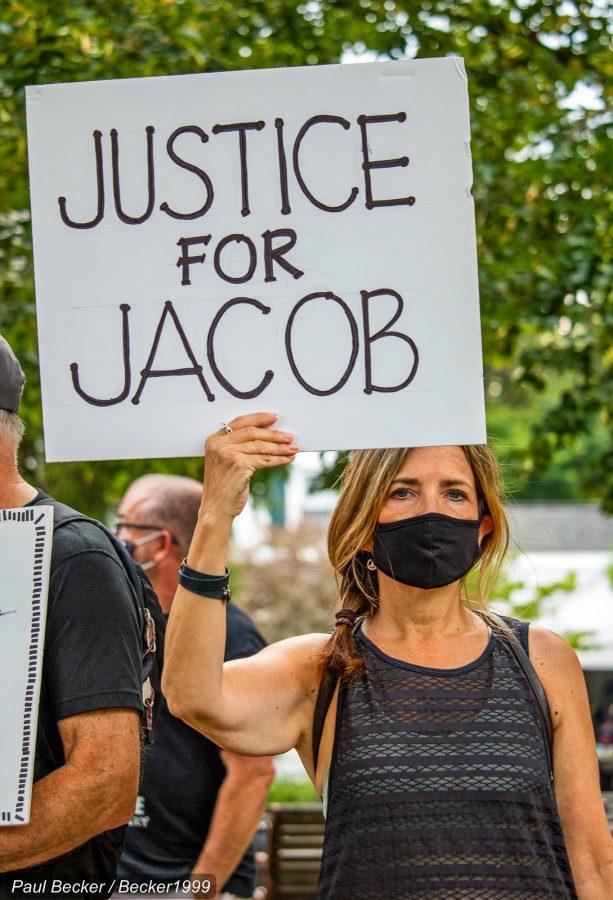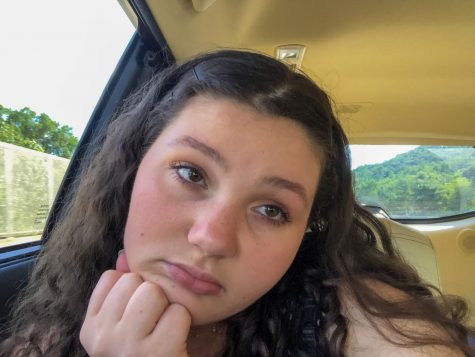Not Just a Game: The Nationwide Impact of Politics in Sports
Paul Becker (contact: pbecker1@u
BLM Protest: Protests ensue in August 2020 after the shooting of Jacob Blake. The NBA playoffs due to be played that day were cancelled by athletes as a form of protest. Photo courtesy of Becker1999 / Creative Commons / via commons.wikipedia.com
December 21, 2020
In August 2020, the sports world came to a hurtling stop as the Milwaukee Bucks refused to play the Orlando Magic in protest of Jacob Blake’s shooting, sparking a boycott of all three NBA games the same week. After weeks of protesting police brutality and racial injustice from the entire NBA, this action was the most direct form of activism in professional sports the country has seen in the past few months.
As President-elect Joe Biden and Vice President-elect Kamala Harris are gearing up for their presidential term, the country as a whole seems to be reflecting on the past year full of political unrest and tragedy. A pandemic, a civil rights movement and a history-making election. Where do professional sports come into play?
Sports and politics have always been teetering on the edge of one another, a thin line separating the two. To the dismay of many, they have crossed paths in the past and continue to do so today. An infamous example, Muhammed Ali’s resistance in joining the draft for the Vietnam War. It was a controversy in which an athlete’s political responsibility was at its highest. Adrienne Stack, a fifth-grade teacher at Park Middle School, understands why some would want to keep the two separate, but believes that those with social and political influence should use it.
“When you have a voice like that, I almost feel like you have voluntarily launched yourself into this echelon of being so well-known and so prominent and you are creating trends and impacting people,” Stack said. “And if you could have a megaphone that allows you to be heard by everybody, I think they have to be intertwined. It is just another way to get the message out.”
An example of such an athlete is LeBron James, a basketball legend and prominent activist. Creator of the “More Than a Vote Group” dedicated to registering African American voters and fighting voter suppression and an outspoken leader on social change, James has forever been holding the torch when it comes to social justice. This has led to controversy and backlash, but US History teacher Matthew Tiedemann feels James is the perfect role model for youth all across the country.
“ I think it will set a trend moving forward for younger people and the next generation of professional athletes to speak out on social change,” Tiedemann said. “I think it will be something that the ‘next’ Lebron James or any other athlete out there will see and make it a priority for them to speak up and continue the push for social change.”
James is not the only athlete to stand up for social change. Colin Kaepernick, former quarterback for the San Francisco 49ers, is known for kneeling during the national anthem. His actions sparked controversy around the country, eventually ending up in Kaepernick being blackballed by the owners of NFL entirely. In August 2020, the Milwaukee Bucks vs. Orlando Magic game was canceled to protest the shooting of Jacob Blake. Hundreds of athletes in various professional sports leagues followed suit. This angered some fans, as it was seen as rude, insensitive and ignorant, but Katie Ramalho, a sophomore on the girl’s varsity soccer team at Scotch Plains-Fanwood High School, thinks that being an athlete does not exempt one from being a victim of prejudice.
“Just because an athlete is known for their sport does not mean they can’t still be passionate about issues that oftentimes impact them too,” Ramalho said. “They can speak on behalf of people who are ignored or in need of help.”
Athletes in positions of power are making the country a better place through their activism. Let sports and politics remain intertwined to see positive change. As this tumultuous year comes to a close, one thing is clear: one voice is better than none.



